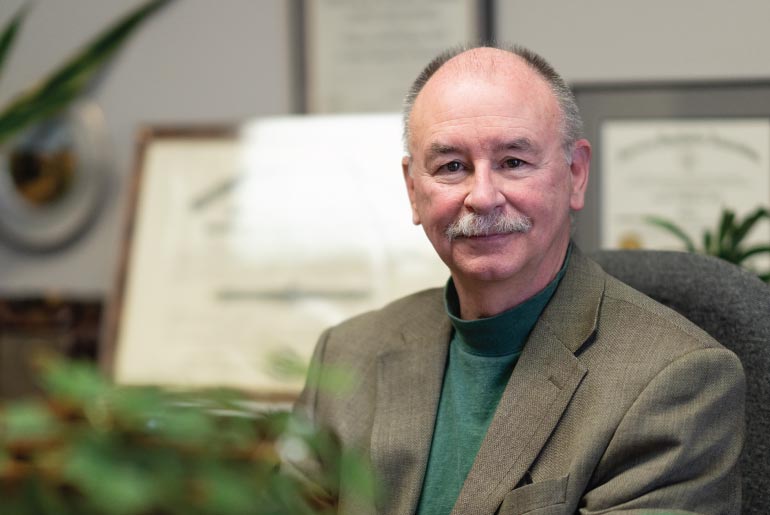

Dr. Andrew McLean uses his endowed position to meet behavioral health needs across the region.
Andrew McLean, M.D., M.P.H., received his undergrad degree (’80) and medical degree (’87) from UND. He now serves as Chair of the Department of Psychiatry and Behavioral Science at UND’s School of Medicine & Health Sciences (SMHS). His father’s work as a rural North Dakota physician largely influenced Dr. McLean’s decision to study psychiatry in medical school.
“My dad used to say that half of what he did was mental health, so I have a real soft spot for primary care providers who are trying to do the best they can to help their patients through mental health issues,” said Dr. McLean.
Dr. McLean holds the Neuropsychiatric Research Institute (NRI) Lee Christopherson Endowed Chair position, one of six endowed positions at SMHS. Dr. Lee Christopherson, a renowned neurosurgeon who practiced in Fargo, was a friend of Dr. McLean’s father, “so this title has a special meaning for me. It’s an honor to be in an endowed chair under his name,” said Dr. McLean.
I have a real soft spot for primary care providers who are trying to do the best they can to help their patients through mental health issues.Dr. Andrew McLean, ’80, ’87
The extra funding provided through this position has allowed Dr. McLean and the Department to continue pursuing improvements in behavioral healthcare and training across the region through collaboration with programs such as the Behavioral Health Bridge, the Mountain Plains Mental Health Technology Transfer Center and Project ECHO.
“It really allows us to build for the future. Our state has done a nice job of supporting higher levels of education and institutions, but other sources of funding have dropped, making external funding like this even more important,” he said.
One of Dr. McLean’s areas of focus has been expanding the SMHS Psychiatry Residency Program and the Rural Psychiatry Program. Because of the commitment of his department’s faculty and staff, psychiatry residents have gained more experience working within communities and through telepsychiatry while, in turn, alleviating behavioral health provider shortages across the state.
Keeping his father’s experience in mind, Dr. McLean has worked closely with other departments to expand behavioral health education across disciplines so that every SMHS graduate can help address patients’ mental health needs in their own profession.
“We’re never going to grow enough mental health providers and psychiatrists, but we can work a lot smarter and help our colleagues be more efficient,” explained Dr. McLean. “And then that opens up more access to psychiatrists for people who really need the help.”